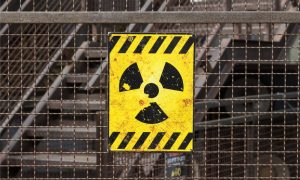
In December 2017, President Donald Trump announced that the US will be relocating its embassy to Jerusalem. Most Israelis welcomed the move. The Palestinians hated it. But two years after the dramatic decision, did it make any difference?
There is little doubt that President Trump’s announcement was a “courageous and historic act,” as US Ambassador David Friedman tweeted on Friday. But its impact, for better or for worse, has been mostly symbolic.
Security Situation Unaffected
The decision to move the embassy provoked concerns about Arab outrage exploding in Palestinian areas and across the Middle East. The US and Israel declared a high state of alert and braced for major violence. But as it turned out, the fears were exaggerated.
The announcement prompted a minor uptick in rocket fire from the Gaza Strip, and some protests elsewhere. When the embassy moved six months later, dozens of Palestinians died in deadly clashes on the Gaza border that coincided with Israel’s 70th anniversary. But the violence soon subsided.
Ultimately, the US decision provoked some Arab anger and criticism, but little else. The security situation in the West Bank remains largely stable, and any current tensions in Jerusalem have little to do with the embassy move.
No Diplomatic Breakthrough
Israel expected that the US decision will prompt other countries to move their embassies to Jerusalem. Reports in the subsequent weeks and months claimed that various governments would soon be following the American example. But none of this materialized.
By now, only the US and Guatemala relocated their embassies to Jerusalem. A few other countries are reportedly considering the move, but have made no firm commitments. Even leaders who are deeply sympathetic to Israel, such as Brazilian President Jair Bolsonaro, are hesitating.
Shortly after President Trump’s decision, Israel announced plans to build an Embassy District in East Jerusalem. “Move quickly, as the best locations will be taken soon,” then-Construction Minister Yoav Galant said at the time. By now it seems that the demand was lower than expected.
Impact on Peace Process?
The US embassy move provoked harsh Palestinian reactions. A month later, President Mahmoud Abbas lashed out at President Trump and declared that the peace process was dead.
However, the relocation of the embassy was only the first in a series of US moves that angered and frustrated the Palestinians. These included slashing aid funds and shutting down the PLO mission in Washington. Most recently, the US changed its position on the legality of Israel’s West Bank settlements.
The peace process is indeed in deep freeze, and President Trump may ultimately shelve his plan to resolve the Middle East conflict. The embassy move certainly played a part in this, but it is not the only reason for the grim state of US-Palestinian relations at this time.
Overall, moving the embassy to Jerusalem had a negligible effect on the ground. While symbolically meaningful, the move did not lead to any major changes or shifts. This suggests that the Israeli-Palestinian conflict will only be transformed through significant practical actions, rather than symbolic steps.


